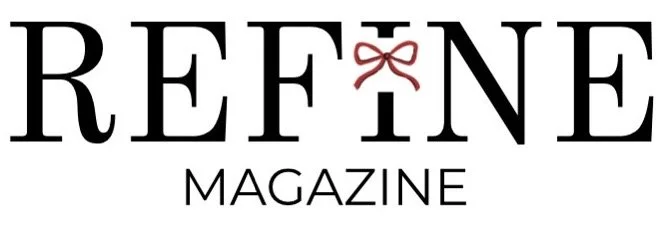“Norman Fucking Rockwell!” is an Instant Classic
Photo credit: Polydor/Interscope
By Will Stickney
Last year, in an episode of the leftist podcast “Aufhebunga Bunga,” cultural critic Anna Khachiyan, in a discussion on contemporary pop music, spoke at length about her admiration for Amy Winehouse, drawing parallels between the late singer and Lana Del Rey. She even said that Del Rey took the torch from Winehouse, following her lead.
Paraphrasing a quote from Winehouse, Khachiyan said: “I identify with the love songs of the 50s and 60s, particularly from female vocalists because they were this plaintive expression of need: ‘I want you, I need you, I love you, I depend on you.’ If you look at pop songs these days— especially the ones that are marketed for women from Beyonce or Ariana Grande or Selena Gomez or Rihanna—the message that you get is: ‘I’m a girl boss, I’m stacking paper, I don’t need you,’ and that’s patently untrue.”
Khachiyan’s interpretation and subsequent analysis of Winehouse’s statement on the shift in cultural values of pop music is incredibly astute. Sure, Khachiyan’s statement is a bit hyperbolic, but she seizes a crucial point: romantic relationships aren’t prioritized in the way that they were in previous generations.
Instead, people are putting all their time and energy into their work, blurring the once clear line between domestic and professional life. Whether out of financial necessity or the misguided belief that work should be the center of our lives, many young people don’t have the time, energy, or even the desire to invest in romantic partnerships.
The millennial generation is the loneliest generation of all time, according to a recent poll by YouGov. 30 percent of millennials said they “always or often feel lonely.” 22 percent of millennials even said they have no friends at all compared to just nine percent of baby boomers surveyed. This is f*cking dismal and it’s an epidemic that has a multitude of contributing factors, the largest being our work culture that has embedded itself into every facet of our being.
This is compounded by the narrative that this is a positive step in the evolution of humanity, pushed by politicians like Hillary Clinton and technocratic, Silicon Valley overlords. This is a race to nowhere: polishing resumes, working 60 plus hours a week, all while the sociopolitical climate surrounding us becomes bleeker and bleaker.
In Lana Del Rey’s newest album, “Norman Fucking Rockwell!” she harkens back to pop starlets of previous generations, like Nancy Sinatra and Julee Cruise, as she has done throughout her career. But this time, Del Rey fills her tracks with humor and a level of insight on this spectacularly fraught time we find ourselves living in.
Del Rey has faced a copious amounts of criticism in the past specifically over this idea that as a pop star, she is nothing more than style over substance. Centering aesthetics over any deeper truth. This has always been mostly an unfounded critique but on this album, Del Rey completely shreds any doubts critics might still have.
In “Venice Bitch,” Del Rey sings a semi-melancholic croon: Give me Hallmark / One dream, one life, one lover / Paint me happy and blue / Norman Rockwell, no hype under our covers / It's just me and you.
Here, Del Rey uses the imagery and tropes of the Americana aesthetic, as she so frequently does, to paint a bittersweet portrait of what relationships often look like. The confusion and hunger for validation, love, and the dance between the two that is always at least an element present in any intimate partnership.
On the titular track, Del Rey sings: You fucked me so good that I almost said, ‘I love you.’ This line is so bitingly funny, so succinct and clear in communicating this tension between love and lust that is near-universal.
Del Rey continues with, But you don’t know half of the shit that you put me through / Your poetry’s bad and you blame the news. These lines come almost back to back and they are so poignant.
On “Love Song” Del Rey sings Dream a dream, here’s a scene / Touch me anywhere, ‘cause I’m your baby / Grab my waist, don’t waste any part / I believe that you see me for who I am / So spill my clothes on the floor of your new car / Is it safe, is it safe to just be who we are. Here Del Rey is asking the same questions about relationships she asks throughout the album (and all of her previous ones by extension). Yet it never gets boring or dull; in fact, the opposite is true.
Del Rey is able to universalize the most specific feelings and events in the relationships we enter as we continue to grow as people. Other artists when dealing with the same subject matter tend to dismiss the stakes at play when two people are intimately connected, or trivialize the details in order to connect with the largest demographic possible. Del Rey shows that relationships are often the most significant part of our lives. Even in an ever-changing time, in a post #MeToo world, relationships often act as the defining narratives of our lives. As we continue to explore power and sex and ask these questions that need to be asked, we could use more artists like Lana.
This album is a masterpiece. Del Rey’s unattached vocals coupled with biting witticisms about romantic relationships in 2019 are at once hysterical and devastating. After years of dropping albums and songs of varying quality with flashes of brilliance scattered throughout, Del Rey truly has undoubtedly crafted a piece of music that will instantly enter the canon of great pop albums.

